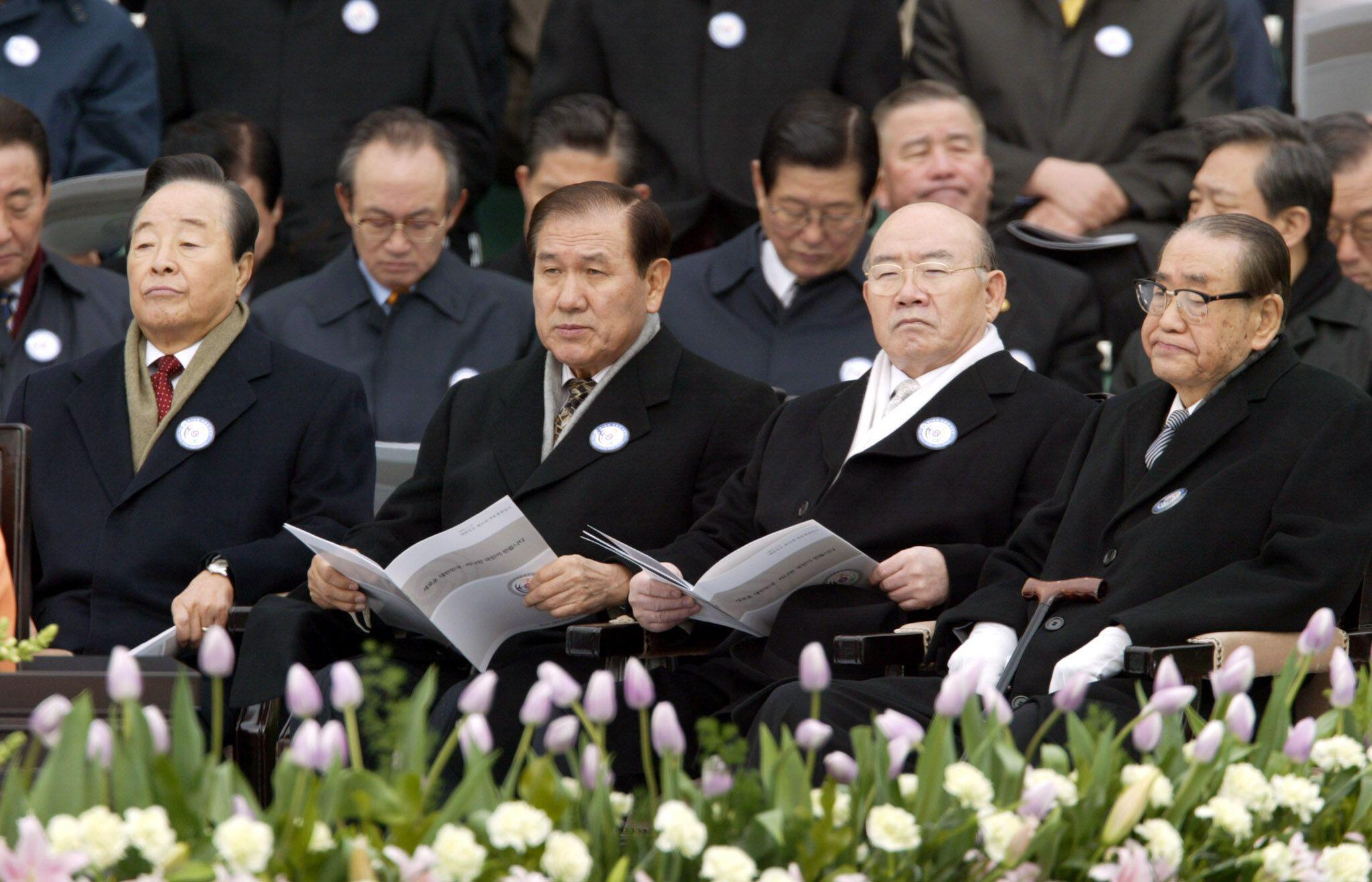Roh Tae-woo << noh teh oo >> (1932-2021) served as president of South Korea from 1988 to 1993. His election marked the first peaceful transition of power in South Korea’s history. 
Roh was born in Talsong, a district of Taegu, Korea (now also spelled Dalseong, a district of Daegu, and now part of South Korea), on Dec. 4, 1932. He graduated from the Korean Military Academy in 1955 and began an army career. One of his classmates at the academy was Chun Doo-hwan, who later became an army general and president of South Korea.
In 1979, South Korean President Park Chung-hee was assassinated. Roh then helped Lieutenant General Chun seize power. Although Choi Kyu-hah had succeeded Park as president, Chun now held all real power in South Korea. In 1980, Chun placed the country under martial law (military rule). He jailed Kim Dae-jung, an opposition leader. That May, violent protests erupted in Kim’s home city of Gwangju (also spelled Kwangju). Chun’s troops brutally put down the revolt, killing hundreds of civilians and injuring thousands more. Roh had no direct involvement in the Gwangju Uprising. However, many Koreans blamed him and Chun for the violence.
Chun was elected president of South Korea in September 1980. As president, he named Roh head of the country’s Defense Security Command. In 1981, Roh retired from the military with the rank of four-star general. In the early 1980’s, he held several Cabinet posts under President Chun. The posts included minister of sports and minister of home affairs. From 1983 to 1986, Roh headed the Seoul Olympic Organizing Committee, which planned the 1988 Summer Olympic Games in Seoul, South Korea’s capital.
In 1985, Roh became chairman of the Democratic Justice Party (DJP), then the ruling party in South Korea. In 1987, Chun announced that Roh would succeed him as president. The announcement triggered protests throughout the country. The protesters called for direct election of the president by the people rather than by the electoral college. In a famous speech in 1987, Roh announced that he would support a change to South Korea’s constitution that would provide for direct presidential elections.
A direct presidential election took place in December 1987. Roh was the DJP candidate and won the election. However, he received only about 37 percent of the popular vote. In February 1988, he took office for a five-year term as president, marking the first peaceful transition of power in South Korea.
The DJP’s lack of a majority in the National Assembly hampered Roh at the beginning of his presidency. In 1990, the DJP merged with two smaller parties to form the Democratic Liberal Party. Kim Young-sam, a Democratic Liberal, succeeded Roh as president in 1993.
In 1996, former presidents Chun and Roh were convicted of crimes related to their roles in the 1979 seizure of power and the 1980 Gwangju massacre. They were also tried and convicted of corruption. Chun received the death penalty. Roh was sentenced to more than 22 years in prison. An appeals court later reduced the sentences. President Kim Young-sam pardoned both men in 1997, and they were released from prison. Roh died on Oct. 26, 2021.
